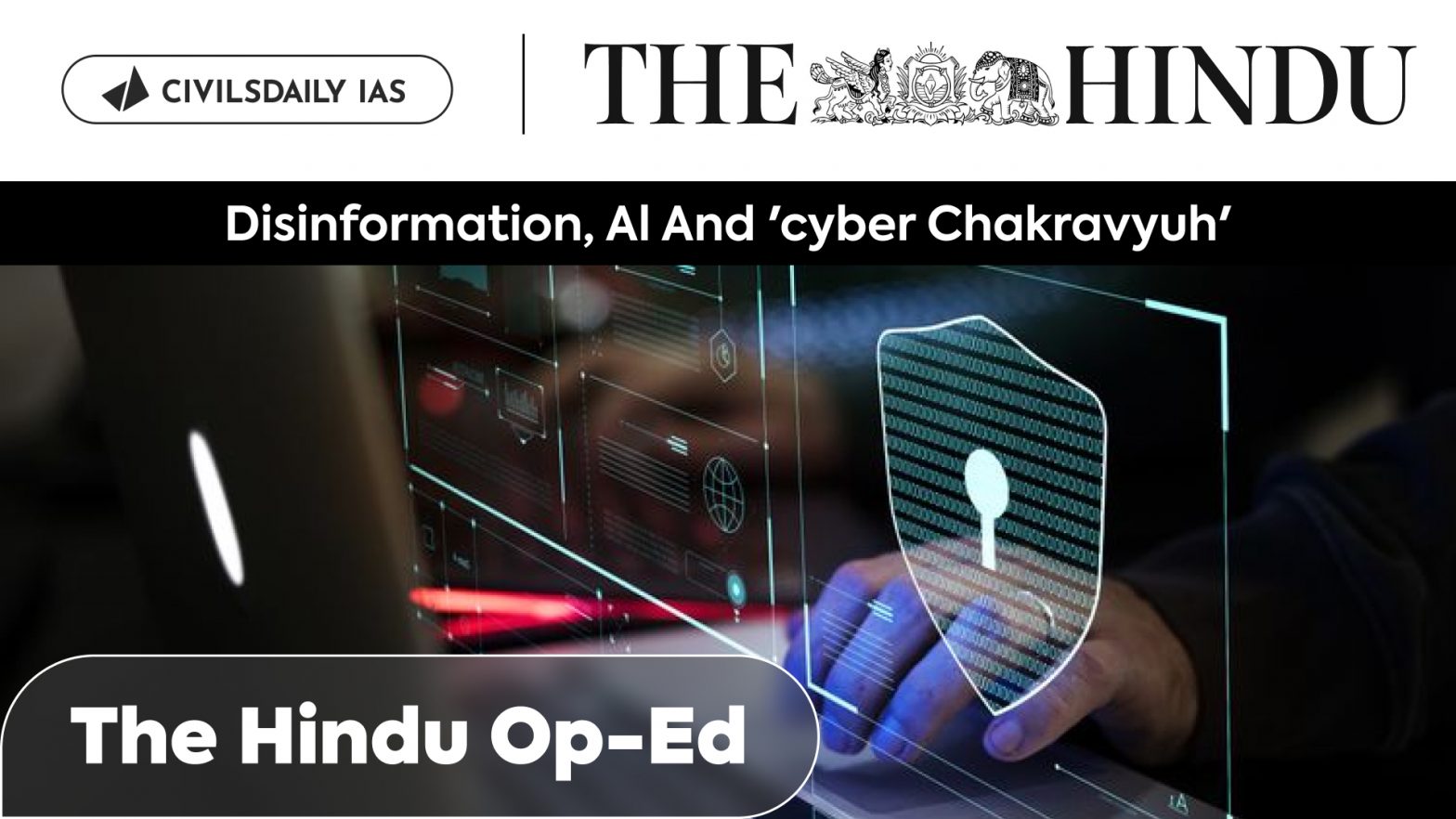| PYQ Relevance: Mains: Q. Discuss different types of cyber crimes and measures required to be taken to fight the menace. (UPSC IAS/2020) Q. “The emergence of the Fourth Industrial Revolution (Digital Revolution) has initiated e-Governance as an integral part of government”. Discuss. (UPSC IAS/2020) |
Note4Students:
Mains: Challenges due to AI in 2024;
Mentor comment: Concerns in 2024 were fueled by fears of new threats from Artificial Intelligence (AI), including Generative AI and Artificial General Intelligence (AGI). The growing potential for disinformation and cyber threats made the outlook particularly grim. The 33rd Summer Olympic Games in France during July-August 2024 were seen as prime targets for digital criminals, prompting experts to prepare for unprecedented attacks. Fortunately, the Games concluded peacefully, without any major incidents. However, the absence of a significant attack shouldn’t lead to complacency, as new digital threats continue to emerge, requiring ongoing vigilance from security agencies.
Let’s learn!
__
Why in the News?
As 2024 began, there were warnings of new security threats on the horizon, and security experts around the world were preparing for a series of attacks across various areas.
Challenges due to AI in 2024:
- Increased Disinformation: The year began with a surge in disinformation, particularly surrounding the Taiwanese elections in January 2024. The atmosphere was rife with fake posts and videos, largely attributed to external influences, notably China.
- National Security Concerns: The combination of AI-generated disinformation and cyber attacks poses a serious threat to national security. This is particularly evident in the ongoing conflict in Ukraine, where both sides have employed disinformation tactics, leading to disruptions in critical infrastructure such as telecommunications and power grids.
- Global Electoral Impact: As elections are scheduled in at least 64 countries in 2024, the potential for AI to disrupt electoral processes has raised alarms.
A recent software glitch in Microsoft Windows
- Global Outage: The outage began on July 19, 2024, affecting Microsoft’s Azure cloud service and quickly spreading to various regions, including the United States and India.
- It disrupted critical operations such as flight schedules, air traffic control, and stock exchanges, showcasing the vulnerability of interconnected systems.
- Severity Rating: The Indian Computer Emergency Response Team (CERT-IN) issued a ‘critical’ severity rating for the incident, indicating the serious nature of the disruption, even though a cyberattack did not cause it.
- Impact on Devices: Microsoft reported that over eight million Windows devices experienced failures due to the glitch, leading to widespread operational issues.
- Many users encountered the Blue Screen of Death (BSOD), which trapped them in boot loops and rendered their devices inoperable.
| Do you know? This incident recalls previous significant cyberattacks, such as WannaCry in 2017, which infected over 230,000 computers globally, and Stuxnet in 2010, which specifically targeted Iran’s nuclear program. |
| Steps taken by the Indian government: • Indian Cyber Crime Coordination Centre (I4C): Established to provide a comprehensive framework for law enforcement agencies (LEAs) to address cyber crimes effectively. It includes various components such as the National Cyber Crime Threat Analytics Unit and the National Cyber Crime Reporting Portal, facilitating state coordination. • Indian Computer Emergency Response Team (CERT-In): It acts as the central agency to help control cybersecurity incidents and disseminate alerts. • Cyber Surakshit Bharat Initiative: Launched to raise awareness about cyber crimes and improve safety measures for Chief Information Security Officers (CISOs) and IT staff across government departments. • Cyber Swachhta Kendra: This initiative focuses on detecting and removing malicious botnet programs from computers. |
Way forward:
- Strengthening Cybersecurity Infrastructure: The government should focus on enhancing the existing cybersecurity frameworks and expanding the capabilities of agencies like CERT-In and I4C.
- Public Awareness and Education: The need to increase awareness about the risks associated with AI-generated disinformation and cyber threats is crucial. Initiatives like Cyber Surakshit Bharat should be expanded to include broader public education campaigns.

